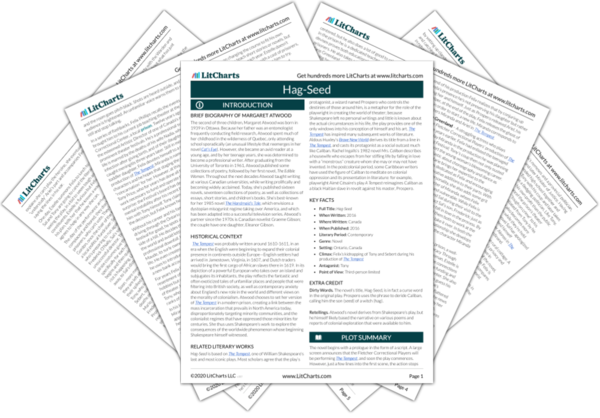Felix’s daughter obviously corresponds to
The Tempest’s Miranda in name, but as an unearthly, invisible spirit she takes on Ariel’s characteristics as well. Moreover, in that Felix conjures up Miranda and sometimes appears to control her, he seems to reenact Prospero’s somewhat tyrannical relationship with Ariel as well.
